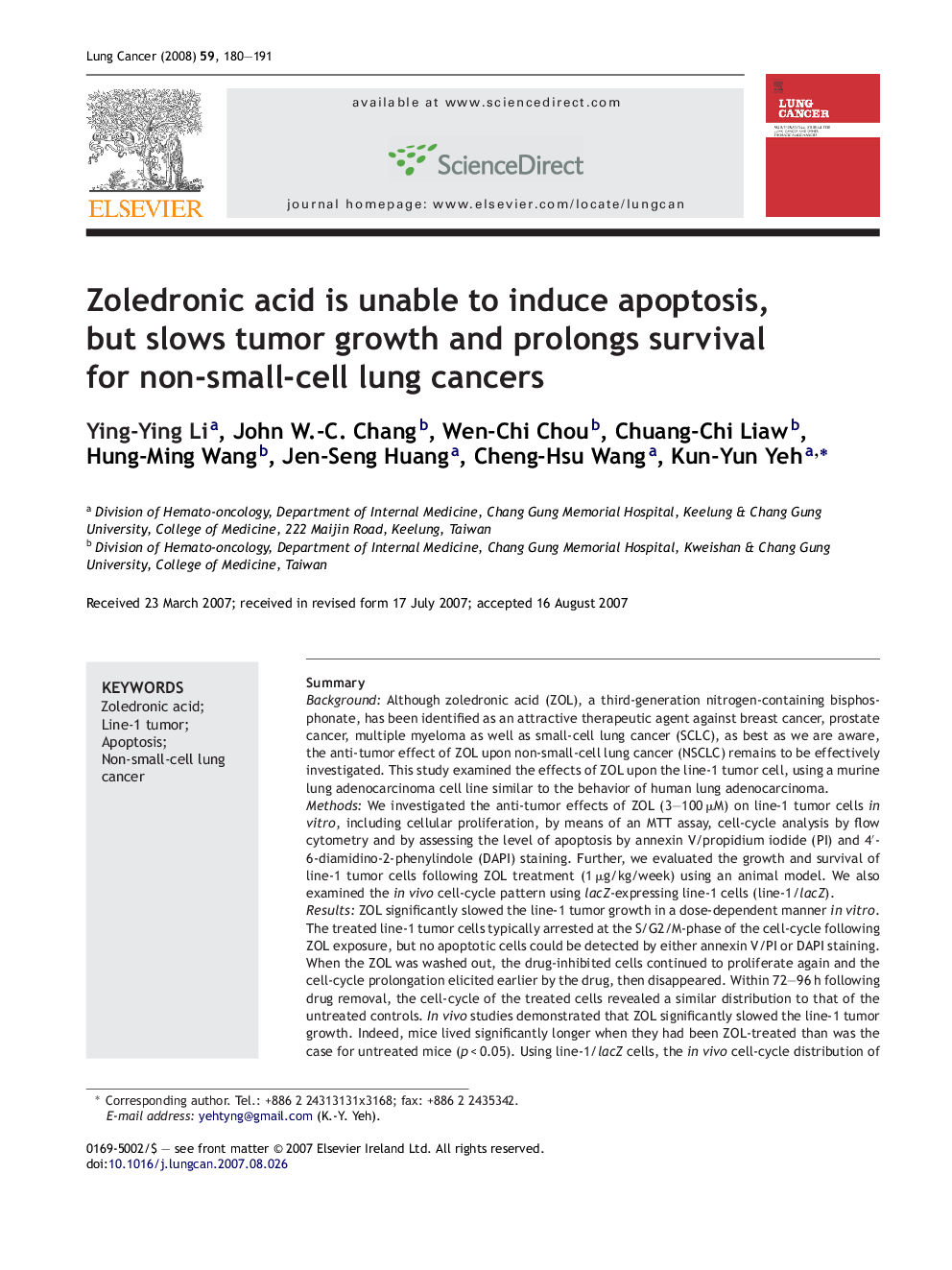| کد مقاله | کد نشریه | سال انتشار | مقاله انگلیسی | نسخه تمام متن |
|---|---|---|---|---|
| 2143718 | 1088356 | 2008 | 12 صفحه PDF | دانلود رایگان |

SummaryBackgroundAlthough zoledronic acid (ZOL), a third-generation nitrogen-containing bisphosphonate, has been identified as an attractive therapeutic agent against breast cancer, prostate cancer, multiple myeloma as well as small-cell lung cancer (SCLC), as best as we are aware, the anti-tumor effect of ZOL upon non-small-cell lung cancer (NSCLC) remains to be effectively investigated. This study examined the effects of ZOL upon the line-1 tumor cell, using a murine lung adenocarcinoma cell line similar to the behavior of human lung adenocarcinoma.MethodsWe investigated the anti-tumor effects of ZOL (3–100 μM) on line-1 tumor cells in vitro, including cellular proliferation, by means of an MTT assay, cell-cycle analysis by flow cytometry and by assessing the level of apoptosis by annexin V/propidium iodide (PI) and 4′-6-diamidino-2-phenylindole (DAPI) staining. Further, we evaluated the growth and survival of line-1 tumor cells following ZOL treatment (1 μg/kg/week) using an animal model. We also examined the in vivo cell-cycle pattern using lacZ-expressing line-1 cells (line-1/lacZ).ResultsZOL significantly slowed the line-1 tumor growth in a dose-dependent manner in vitro. The treated line-1 tumor cells typically arrested at the S/G2/M-phase of the cell-cycle following ZOL exposure, but no apoptotic cells could be detected by either annexin V/PI or DAPI staining. When the ZOL was washed out, the drug-inhibited cells continued to proliferate again and the cell-cycle prolongation elicited earlier by the drug, then disappeared. Within 72–96 h following drug removal, the cell-cycle of the treated cells revealed a similar distribution to that of the untreated controls. Invivo studies demonstrated that ZOL significantly slowed the line-1 tumor growth. Indeed, mice lived significantly longer when they had been ZOL-treated than was the case for untreated mice (p < 0.05). Using line-1/lacZ cells, the in vivo cell-cycle distribution of line-1 tumor cells subsequent to ZOL exposure revealed S/G2/M-phase arrest that was identical to the in vitro culture.ConclusionsZOL maintains the potential to reduce tumor burden and prolong survival for murine pulmonary adenocarcinoma. The flow cytometrical analysis of cell-cycle demonstrated that ZOL induces no apoptosis but is able to arrest line-1 tumor cells at the S/G2/M-phase. Although the clinical relevance of these results warrants verification for human lung cancer patients, ZOL combined with chemotherapy and/or radiotherapy appears to be a new therapeutic strategy for the effective treatment of NSCLC.
Journal: Lung Cancer - Volume 59, Issue 2, February 2008, Pages 180–191